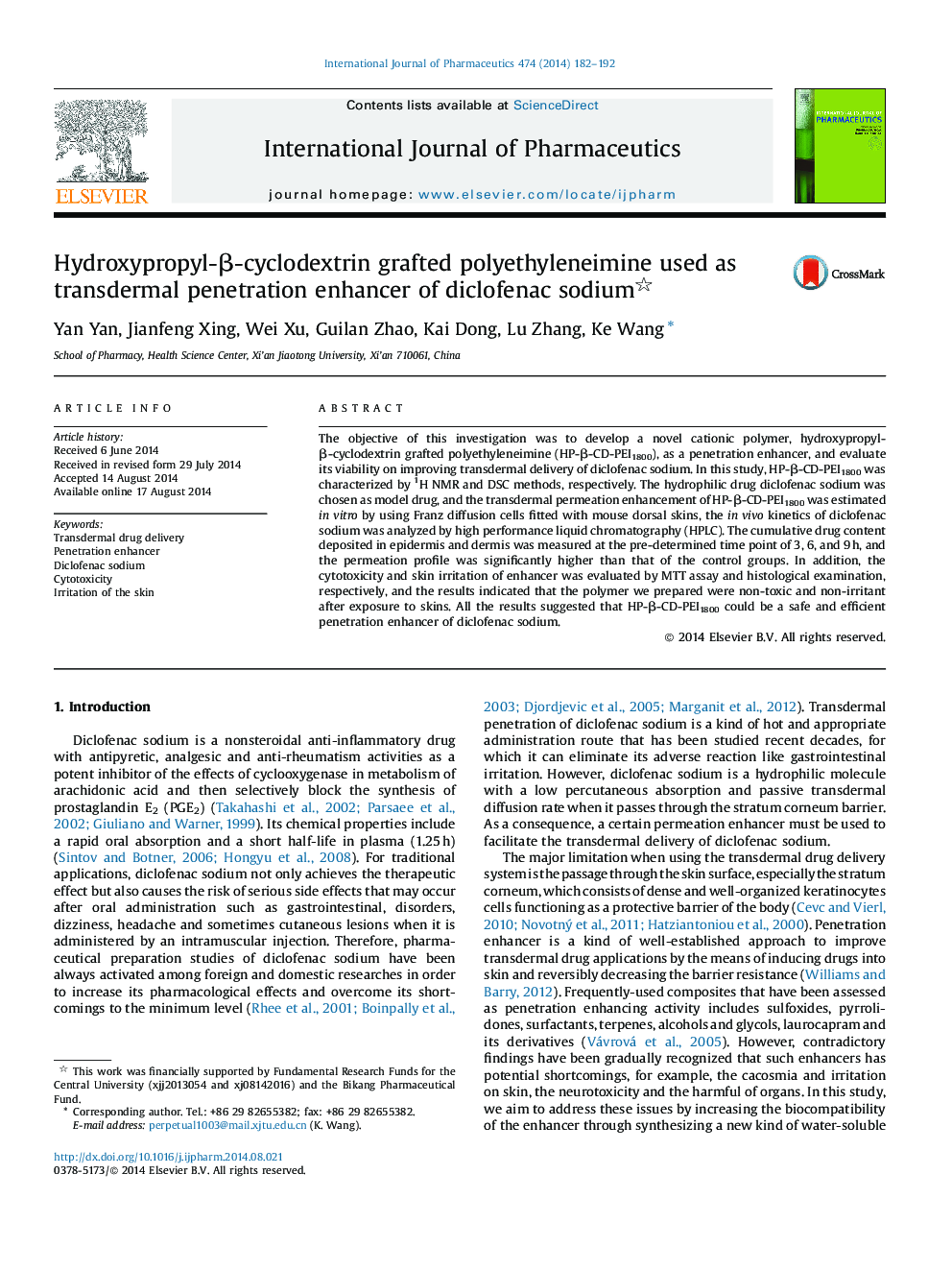| Article ID | Journal | Published Year | Pages | File Type |
|---|---|---|---|---|
| 2501795 | International Journal of Pharmaceutics | 2014 | 11 Pages |
The objective of this investigation was to develop a novel cationic polymer, hydroxypropyl-β-cyclodextrin grafted polyethyleneimine (HP-β-CD-PEI1800), as a penetration enhancer, and evaluate its viability on improving transdermal delivery of diclofenac sodium. In this study, HP-β-CD-PEI1800 was characterized by 1H NMR and DSC methods, respectively. The hydrophilic drug diclofenac sodium was chosen as model drug, and the transdermal permeation enhancement of HP-β-CD-PEI1800 was estimated in vitro by using Franz diffusion cells fitted with mouse dorsal skins, the in vivo kinetics of diclofenac sodium was analyzed by high-performance liquid chromatography (HPLC). The cumulative drug content deposited in epidermis and dermis was measured at the pre-determined time point of 3, 6, and 9 h, and the permeation profile was significantly higher than that of the control groups. In addition, the cytotoxicity and skin irritation of enhancer was evaluated by MTT assay and histological examination, respectively, and the results indicated that the polymer we prepared were non-toxic and non-irritant after exposure to skins. All the results suggested that HP-β-CD-PEI1800 could be a safe and efficient penetration enhancer of diclofenac sodium.
Graphical abstractThese pictures are the schematic representation of synthesized HP-β-CD-PEI and transdermal penetration mechanism. This new kind of cationic polymer was used as the safety transdermal permeation enhancer that demonstrated its great potential application in transdermal hydrophilic drug delivery system.Figure optionsDownload full-size imageDownload high-quality image (257 K)Download as PowerPoint slide
